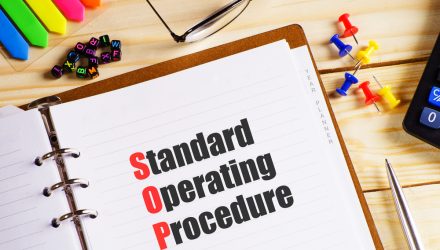As interest in sustainable investing gains momentum, experts warn that the budding industry will require greater transparency if it aims to do good for the world.
ESG or environmental, social and governance investments have resonated with investors whom try to contribute to a better environment, society or workplace. According to Deloitte data, the percentage of global investors that have applied ESG criteria to at least a quarter of their investments has increased to 75% in 2019 from 48% in 2017, CNBC reports.
The numbers are expected to continue to rise as ESG is just beginning to make headway in the U.S. markets. Deloitte projected that U.S. professional investors could allocate 50% of their investments into ESG assets over the next five years.
“There is this increasing understanding in society that we need to care about the climate, about social conditions of employees,” Zacharias Sautner, a professor of finance at the Frankfurt School of Finance & Management, told CNBC, adding that this is being reflected in the way investments are made.
However, some question whether ESG investments are really effective in improving and supporting the world around us.
“We have seen a booming of the number of, for example, ESG rating and scoring providers and that is an area which is largely unregulated and it is difficult for us to make sense of the different scorings and ratings if there is no clarity on the underlying methodology,” Alessandro d’Eri, a senior policy officer at the European financial watchdog ESMA, told CNBC, adding that there’s another issue which is “the mismatch between the expectations of investors in wanting more and more to invest in ESG type of products and the actual availability of products that are truly ESG compliant or sustainable.”
The industry still faces a hodgepodge of varying ESG criteria without a clear cut standard. One may argue that a company is not ESG-friendly and does not invest accordingly, but another could state the same firm is following a sustainable criteria.
“When you think about the composition of ESG funds it’s first of all important to remember they are still meant to be a fund invested to get a return for the portfolio. And so they can tilt based on industry groups, based on sector views and that may or may not relate to an ESG view,” Sheila Patel, chairman of Goldman Sachs Asset Management, told CNBC.
Regulators and lawmakers are beginning to step up. For instance, the European Union will set up performance thresholds from 2021 onward and minimum safeguards meant to help investors and companies transitioning into a greener economy. Portfolio managers of ESG funds in Europe will be required to explain how and to what extent when determining whether companies are following sustainable steps.
“We have largely seen the regulatory momentum taking place in Europe,” Kristen Sullivan, partner and Americas region sustainability services leader at Deloitte, told CNBC.
“I do think that U.S. companies, absent regulation, are not waiting. And I think companies certainly see that there are broader global trends, there’s opportunity, this is not going to be just a compliance exercise,” she added.

